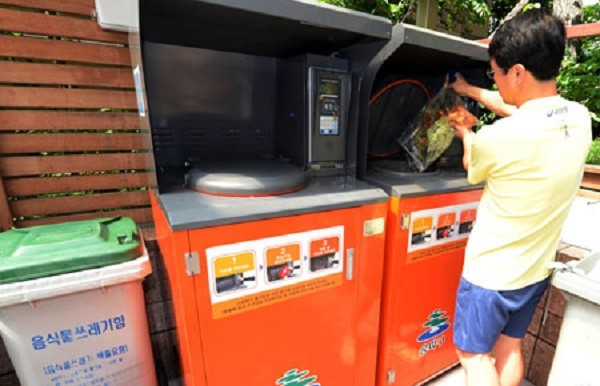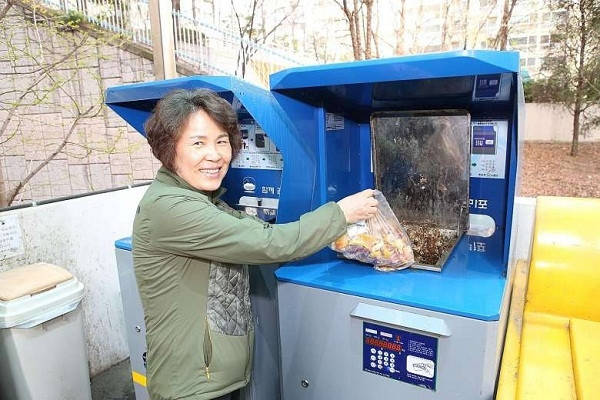Paying to throw away trash - how Koreans are protecting the environment
The recycling movement was initiated by the Korean government in 1990 to encourage families to stop wasting food and throw away less garbage to reduce the pressure on landfills. Currently, Koreans have to pay a fee equivalent to the amount of garbage they throw away each day.
 |
| The more trash you throw away, the more money you have to pay, that's how Koreans are doing to protect the environment. |
English teacher Michelle Svensson, who moved to South Korea in 2012, was surprised to learn that people in the country are required to separate their food waste and put it in a central bin in their living quarters. “It’s horrible,” she says. “My husband hates taking out the food waste because it smells bad and it’s embarrassing to take it into the elevator.”
To avoid the hassle of dumping trash, the couple pays a 10,000 won (VND250,000) monthly food waste disposal fee. This waste is recycled into dry powder and used as fertilizer.
Food waste disposal is a big problem in Korea. The government launched a recycling campaign in 1990 to encourage households to stop wasting food and throw away less raw waste to reduce the pressure on landfills. At that time, most waste was incinerated or dumped into the sea, but today it is recycled into fertilizer or animal feed.
According to the Korean Ministry of Natural Resources and Environment, the country reduced food waste from 5.1 million tons to 4.8 million tons between 2008 and 2014. Thanks to the waste disposal fee system, the government collected more than 185 billion won to build waste recycling facilities. The amount of paper, cans, bottles, plastic, and iron waste that can be recycled accounts for 80%, the rest will be buried or destroyed.
The food waste disposal system has been in place since 2013. Some residential areas require residents to pay for their waste. The amount of waste is weighed each time and residents are charged a fee.
Since its introduction, the system has worked well in many cities, including Seoul, a city of 10 million people. The average daily waste volume has dropped from 3,300 tons in 2012 to 3,181 tons in 2014. The city authorities are now aiming for 2,318 tons by 2018. To make people understand the seriousness of the problem, the price of garbage bags has also been raised by 30% compared to the beginning of the year. Previously, a 10-liter bag cost between 170 and 800 won, but now it will be much higher.
 |
| The automatic pay-to-use trash can system has helped reduce waste significantly in Korea. |
Yu Gwang Mo, head of Mapo District in Seoul, a city of 390,000 people, said the district has installed 189 electronic trash bins that can automatically weigh trash and plans to install 450 more. Each bin costs 1,700,000 won and can serve 60 households.
“This is a very effective way to reduce household food waste,” he said. “People often buy too much food and then throw it away. When they have to pay for what they waste, they start to learn to control their purchases.”
The only problem with the automatic trash bin project is the foul smell that comes out in the summer, which residents complain about. The district government has come up with a solution: using ginkgo leaves to neutralize the smell.
“I think it’s a great idea because people are starting to think about what should be thrown away and what should not be wasted,” said Cho Sung Ja, 58, a resident of the district who lives with her husband and son in a three-bedroom apartment. She said she has been using the automated bin system for the past two years.
A food recycling company called Cara has been making a killing from this system, which turns food waste into dry powder or fuel that can be used for outdoor cooking. Sales have tripled since 2013 and are expected to reach 10 billion won by the end of this year, said CEO Choi Ho-sik.
According to Tri Thuc Tre
| RELATED NEWS |
|---|

